In this article, you will discover a fascinating array of examples of supplements found in everyday foods. These dietary additions are packed with essential nutrients, vitamins, and minerals that can enhance your health and well-being. From the bright hues of berries brimming with antioxidants to the mighty omega-3 fatty acids found in fish, these supplements in food are nature’s way of nourishing our bodies. Join us on this exploration as we uncover the hidden gems that can potentially transform your diet and elevate your overall wellness. So, let’s embark on this flavorful journey together and uncover the power of natural supplementation in food!
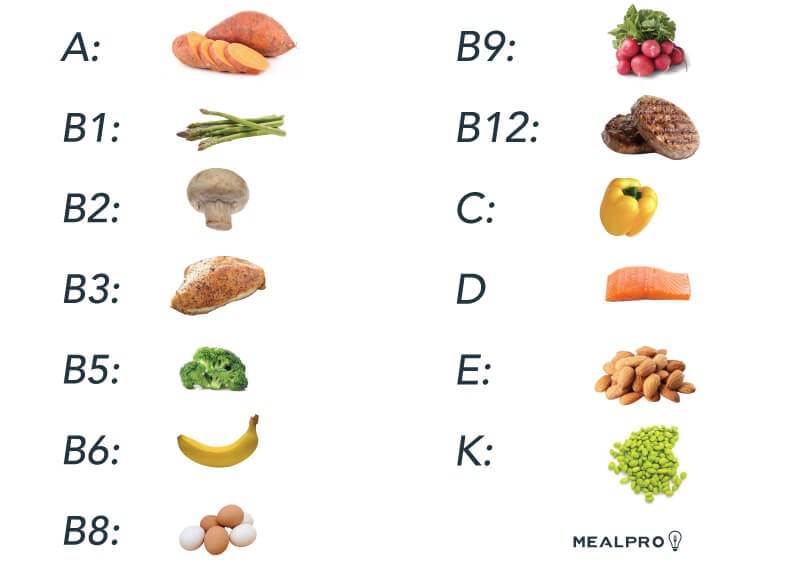
This image is property of www.mealpro.net.
Vitamins
Vitamin A
Vitamin A is a fat-soluble vitamin that plays a vital role in maintaining healthy vision, immune function, and cell growth. It can be found in foods such as carrots, sweet potatoes, spinach, and kale. Including these foods in your diet can provide an excellent natural source of vitamin A. However, if you struggle to meet your daily requirements, vitamin A supplements are available in the form of capsules or tablets. It is important to note that vitamin A supplements should be taken in moderation and under the guidance of a healthcare professional, as excessive intake can lead to toxicity.
Vitamin C
Vitamin C, also known as ascorbic acid, is an essential nutrient that plays a crucial role in supporting a healthy immune system, collagen production, and wound healing. Some excellent dietary sources of vitamin C include citrus fruits like oranges and grapefruits, strawberries, tomatoes, and bell peppers. However, if you find it challenging to consume sufficient amounts of these foods regularly, vitamin C supplements can be a convenient way to ensure you meet your daily requirements. These supplements are available in various forms, such as tablets, capsules, and chewable tablets.
Vitamin D
Vitamin D is unique among other vitamins as it can be synthesized by the body when the skin is exposed to sunlight. However, many people may not get enough sun exposure or have difficulty absorbing vitamin D from sunlight alone. In such cases, vitamin D supplements can be beneficial. Vitamin D is crucial for promoting calcium absorption, maintaining bone health, and supporting immune function. It can be found in supplement forms such as tablets, capsules, and liquid drops. It is important to consult with a healthcare professional to determine the appropriate dosage of vitamin D for your specific needs.
Vitamin E
Vitamin E is a fat-soluble vitamin that acts as a powerful antioxidant in the body, protecting cells from damage caused by free radicals. The primary dietary sources of vitamin E include nuts, seeds, vegetable oils, and leafy green vegetables. However, for those who may have limited access to these foods or require additional supplementation, vitamin E supplements can be an option. These supplements are available in various forms, including soft gels, capsules, and oils.
Vitamin K
Vitamin K is essential for blood clotting, bone health, and heart health. It can be found naturally in foods such as leafy green vegetables, broccoli, and Brussels sprouts. However, some individuals may require additional vitamin K supplementation, especially if they have certain medical conditions or take specific medications that interfere with its absorption. Vitamin K supplements are available in various forms, including tablets and capsules. It is important to consult with a healthcare professional to determine the appropriate dosage and form of vitamin K supplementation for your individual needs.
B Vitamins
The B vitamins include a group of water-soluble vitamins that play various roles in the body. They are involved in energy metabolism, brain function, and the formation of red blood cells. Examples of B vitamins include thiamine (B1), riboflavin (B2), niacin (B3), pantothenic acid (B5), pyridoxine (B6), biotin (B7), folate (B9), and cyanocobalamin (B12). These vitamins can be found in a wide range of foods, including whole grains, meat, fish, eggs, dairy products, and leafy green vegetables. However, if your diet is lacking in these foods or you have specific dietary restrictions, B vitamin supplements can be an excellent option to ensure you meet your daily requirements. These supplements are available individually or in B complex formulations.
Minerals
Calcium
Calcium is an essential mineral that plays a critical role in maintaining strong bones and teeth, blood clotting, and muscle function. Excellent dietary sources of calcium include dairy products, leafy green vegetables, tofu, and fortified foods. However, individuals who are lactose intolerant, follow plant-based diets, or have limited access to these foods may require additional calcium supplementation. Calcium supplements are available in various forms, such as tablets, chewable tablets, and liquid formulas. It is important to consider the recommended daily intake and consult with a healthcare professional to determine the appropriate dosage and form of calcium supplementation for your needs.
Iron
Iron is a crucial component of hemoglobin, which carries oxygen throughout the body. It is essential for preventing iron-deficiency anemia and maintaining overall good health. Dietary sources of iron include red meat, liver, spinach, lentils, and fortified cereals. However, some individuals, such as vegetarians, vegans, or those with increased iron needs, may benefit from iron supplementation. Iron supplements are available in various forms, including tablets and liquid formulas. It is important to note that excessive iron intake can be harmful, so it is essential to consult with a healthcare professional before starting iron supplementation.
Zinc
Zinc is an essential mineral involved in numerous bodily functions, including immune function, wound healing, and DNA synthesis. Good dietary sources of zinc include meat, shellfish, legumes, and seeds. However, individuals with certain medical conditions or dietary restrictions may require additional zinc supplementation. Zinc supplements are available in various forms, such as tablets, capsules, and lozenges. It is important to consult with a healthcare professional to determine the appropriate dosage and form of zinc supplementation for your specific needs.
Magnesium
Magnesium is crucial for maintaining healthy muscles, nerves, and bones, as well as regulating blood pressure and blood sugar levels. Dietary sources of magnesium include green leafy vegetables, nuts, seeds, and whole grains. However, individuals with certain medical conditions, such as gastrointestinal disorders or kidney disease, may have difficulty absorbing magnesium from food and may benefit from magnesium supplementation. Magnesium supplements are available in various forms, including tablets, capsules, and powders. As with any supplement, it is important to consult with a healthcare professional to determine the appropriate dosage and form of magnesium supplementation.
Potassium
Potassium is an essential mineral that plays a vital role in maintaining heart health, muscle function, and fluid balance. Good dietary sources of potassium include bananas, oranges, potatoes, spinach, and yogurt. However, individuals with certain medical conditions or following specific diets, such as low-sodium diets, may require additional potassium supplementation. Potassium supplements are available in various forms, including tablets and capsules. It is important to consult with a healthcare professional to determine the appropriate dosage and form of potassium supplementation for your individual needs.
Iodine
Iodine is a trace mineral that is crucial for the production of thyroid hormones, which regulate metabolism and growth. Good dietary sources of iodine include seafood, dairy products, and iodized salt. However, individuals who avoid these foods or live in areas with iodine deficiency may require iodine supplementation. Iodine supplements are available in various forms, including tablets and capsules. It is important to consult with a healthcare professional to determine the appropriate dosage and form of iodine supplementation for your specific needs.
Selenium
Selenium is a trace mineral that acts as an antioxidant, supporting a healthy immune system and protecting against oxidative stress. Good dietary sources of selenium include Brazil nuts, fish, poultry, and whole grains. However, individuals with certain medical conditions or following specific diets may benefit from selenium supplementation. Selenium supplements are available in various forms, including tablets and capsules. It is important to consult with a healthcare professional to determine the appropriate dosage and form of selenium supplementation for your individual needs.
Copper
Copper is an essential mineral involved in various bodily processes, including the production of red blood cells, bone maintenance, and the formation of connective tissues. Good dietary sources of copper include organ meats, shellfish, nuts, and seeds. However, individuals with certain medical conditions or dietary restrictions may require additional copper supplementation. Copper supplements are available in various forms, such as tablets and capsules. It is important to consult with a healthcare professional to determine the appropriate dosage and form of copper supplementation for your specific needs.
Manganese
Manganese is a trace mineral that plays a role in bone health, metabolism, and antioxidant function. It can be found in foods such as whole grains, nuts, seeds, and green leafy vegetables. However, individuals with certain medical conditions or limited dietary intake may require additional manganese supplementation. Manganese supplements are available in various forms, including tablets and capsules. It is important to consult with a healthcare professional to determine the appropriate dosage and form of manganese supplementation for your individual needs.
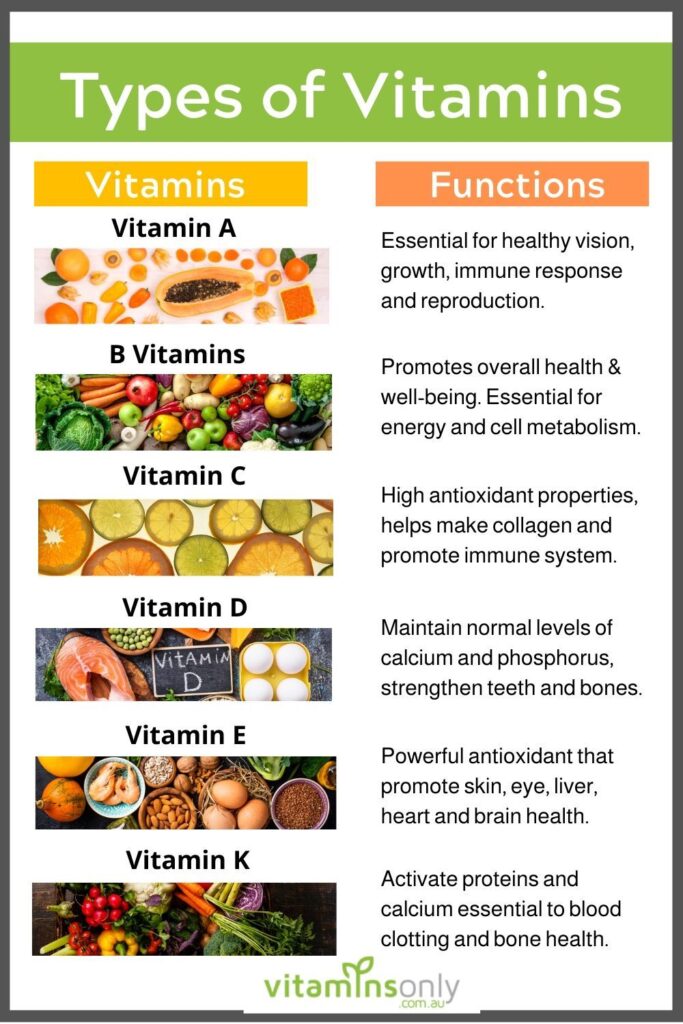
This image is property of i.pinimg.com.
Omega-3 Fatty Acids
Eicosapentaenoic Acid (EPA)
Eicosapentaenoic acid, or EPA, is an omega-3 fatty acid primarily found in fatty fish such as salmon, mackerel, and sardines. EPA is known for its anti-inflammatory properties and its role in supporting cardiovascular health. While it is recommended to obtain EPA through dietary sources, some individuals may have dietary restrictions or limited access to fatty fish. In such cases, EPA supplements derived from fish oil can be a convenient option. These supplements are available in the form of soft gels or liquids.
Docosahexaenoic Acid (DHA)
Docosahexaenoic acid, or DHA, is another omega-3 fatty acid predominantly found in fatty fish. DHA is crucial for brain health, vision development, and maintaining healthy cognitive function. Similar to EPA, DHA can be obtained through dietary sources or through DHA supplements derived from fish oil. These supplements are available in various forms, including soft gels and liquids. It is important to consult with a healthcare professional to determine the appropriate dosage and form of DHA supplementation, especially for pregnant women, breastfeeding mothers, or individuals with specific health concerns.
Alpha-Linolenic Acid (ALA)
Alpha-linolenic acid, or ALA, is an essential omega-3 fatty acid found in plant-based sources such as flaxseeds, chia seeds, walnuts, and soybeans. ALA is converted to EPA and DHA in the body, although the conversion rate is relatively low. For individuals following vegetarian or vegan diets, ALA supplements derived from plant-based oils can be an alternative to obtaining omega-3 fatty acids. These supplements are available in the form of capsules or oils. It is important to note that ALA supplements may not provide the same benefits as EPA and DHA, so it is essential to discuss supplementation options with a healthcare professional.
Proteins
Whey Protein
Whey protein is a highly popular dietary supplement among athletes, fitness enthusiasts, and individuals looking to increase their protein intake. It is derived from milk during the cheese-making process and is known for its high bioavailability and complete amino acid profile. Whey protein supplements come in various forms, including powders, shakes, and bars. It can be an excellent option for promoting muscle growth, recovery, and meeting protein needs, particularly for individuals with increased protein requirements or those seeking convenient sources of protein.
Casein Protein
Casein protein is another protein derived from milk but is digested more slowly than whey protein. It forms a gel-like substance in the stomach, providing a sustained release of amino acids. Casein protein is often favored by individuals looking for a protein source that promotes prolonged muscle protein synthesis, such as before bedtime. Casein protein supplements are available as powders and can be consumed in shakes or mixed with other foods.
Soy Protein
Soy protein is a plant-based protein derived from soybeans and is a suitable option for individuals following vegetarian or vegan diets. It is considered a complete protein, containing all the essential amino acids required by the body. Soy protein supplements can be found in the form of powders, shakes, and bars. They are known for their versatility and can be easily incorporated into various recipes or consumed as standalone supplements to meet protein needs.
Pea Protein
Pea protein is another plant-based protein option that is derived from yellow split peas. It is an excellent choice for individuals with dietary restrictions or allergies, as it is free from common allergens such as gluten, dairy, and soy. Pea protein is rich in essential amino acids and contains high levels of branched-chain amino acids (BCAAs), which are essential for muscle growth and recovery. Pea protein supplements are available in powder form and can be added to shakes, smoothies, or baked goods.
Hemp Protein
Hemp protein is derived from the seeds of the hemp plant and is gaining popularity as a plant-based protein source. It is rich in essential fatty acids, fiber, and minerals. Hemp protein supplements are suitable for individuals with dietary restrictions or allergies, as they are free from gluten, dairy, and soy. These supplements are available in powder form and can be mixed into smoothies, yogurt, or used in baking.
Rice Protein
Rice protein is a plant-based protein option derived from brown rice. It is hypoallergenic and easily digestible, making it suitable for individuals with dietary restrictions or sensitive stomachs. Rice protein supplements are ideal for those seeking a vegan protein source. They are available in powder form and can be added to shakes, smoothies, or used in baked goods.
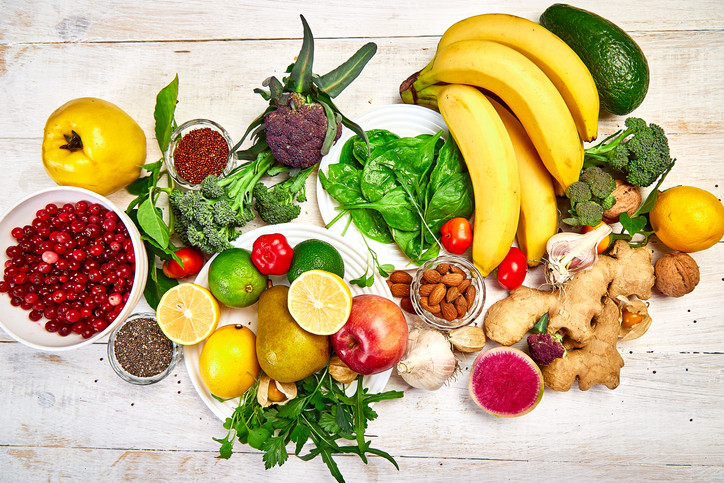
This image is property of content.health.harvard.edu.
Fiber
Soluble Fiber
Soluble fiber is a type of dietary fiber that forms a gel-like substance when mixed with water. It can help to lower cholesterol levels, regulate blood sugar levels, and support digestive health. Good sources of soluble fiber include oats, legumes, apples, and citrus fruits. While it is recommended to obtain fiber through a balanced diet, individuals who struggle to reach their daily fiber intake may consider fiber supplements. Soluble fiber supplements are available in various forms, such as powders or capsules. It is important to gradually increase fiber intake and ensure an adequate intake of fluids when using fiber supplements.
Insoluble Fiber
Insoluble fiber is another type of dietary fiber that does not dissolve in water. It adds bulk to the stool, promoting regular bowel movements and preventing constipation. Whole grains, nuts, and vegetables are excellent sources of insoluble fiber. While increasing dietary fiber is preferred, individuals who need additional insoluble fiber may consider fiber supplements. Insoluble fiber supplements are available in various forms, including powders and capsules. It is important to drink plenty of fluids when using insoluble fiber supplements.
Prebiotic Fiber
Prebiotic fiber is a type of dietary fiber that acts as a food source for beneficial gut bacteria. It can help support a healthy gut microbiome and improve digestion. Prebiotic fibers can be found naturally in foods such as onions, garlic, chicory root, and bananas. However, individuals who have difficulty incorporating these foods into their diet or have specific gut health concerns may consider prebiotic fiber supplements. Prebiotic fiber supplements are available in various forms, such as powders and capsules. It is important to start with a small dosage and gradually increase intake to minimize potential digestive discomfort.
Psyllium Fiber
Psyllium fiber is a type of soluble fiber derived from the seeds of the Plantago ovata plant. It is commonly used as a bulk-forming laxative to relieve constipation. Psyllium fiber supplements can be effective in promoting regular bowel movements and improving gastrointestinal health. These supplements are available in various forms, including powder and capsules. It is important to drink plenty of fluids when using psyllium fiber supplements to prevent dehydration and aid in the passage of stool.
Antioxidants
Vitamin E
Vitamin E, as mentioned earlier, is a powerful antioxidant that helps protect cells from damage caused by free radicals. It is found in various foods such as nuts, seeds, vegetable oils, and leafy green vegetables. However, for individuals who struggle to obtain adequate amounts of vitamin E through their diet, vitamin E supplements can be a convenient option. These supplements are available in various forms, including soft gels and capsules.
Vitamin C
Vitamin C, also known as ascorbic acid, is another potent antioxidant that supports the immune system and aids in collagen production. It is naturally found in citrus fruits, strawberries, tomatoes, and bell peppers. While it is recommended to meet vitamin C needs through dietary sources, vitamin C supplements can be useful for individuals who have difficulty consuming these foods regularly. These supplements are available in various forms, including tablets, capsules, and chewable tablets.
Beta-Carotene
Beta-carotene is a precursor to vitamin A and acts as an antioxidant in the body. It can be found naturally in orange and yellow fruits and vegetables, such as carrots, sweet potatoes, and apricots. Individuals who struggle to consume these foods regularly may consider beta-carotene supplements. These supplements are available in various forms, including soft gels and capsules.
Lycopene
Lycopene is a carotenoid pigment that gives fruits and vegetables their red color. It is a potent antioxidant that has been associated with various health benefits, particularly in promoting heart health and reducing the risk of certain cancers. Tomatoes and tomato-based products, such as tomato sauce and tomato juice, are the primary dietary sources of lycopene. However, for individuals who have limited access to these foods or difficulty absorbing lycopene from food alone, lycopene supplements can be an option. These supplements are available in the form of soft gels or capsules.
Selenium
Selenium, as mentioned earlier, is a trace mineral that acts as an antioxidant, protecting the body against oxidative stress. It can be found in Brazil nuts, fish, poultry, and whole grains. For individuals who struggle to obtain sufficient amounts of selenium through their diet, selenium supplements can be a suitable option. These supplements are available in various forms, including tablets and capsules. It is important to consult with a healthcare professional to determine the appropriate dosage and form of selenium supplementation for your individual needs.
Flavonoids
Flavonoids are a diverse group of antioxidants found in fruits, vegetables, tea, and cocoa. They have been associated with numerous health benefits, including reducing inflammation and protecting against chronic diseases such as heart disease and certain types of cancer. While it is recommended to obtain flavonoids through dietary sources, individuals who have difficulty consuming these foods or want to ensure an adequate intake may consider flavonoid supplements. These supplements are available in various forms, such as capsules, tablets, and extracts.
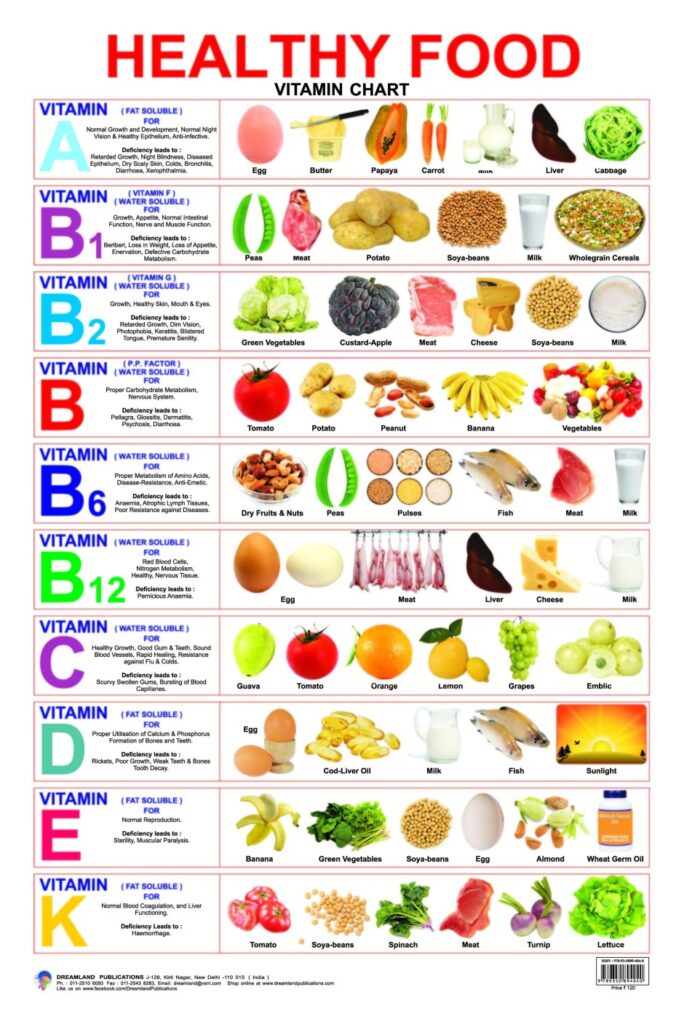
This image is property of www.basicknowledge101.com.
Probiotics
Lactobacillus
Lactobacillus is a type of bacteria commonly found in the digestive tract, mouth, and vagina. It is considered a beneficial probiotic that helps support a healthy gut flora and improve digestion. Some dietary sources of lactobacillus include yogurt, kefir, and fermented vegetables. However, individuals who struggle to incorporate these foods into their diet or have specific gut health concerns may consider lactobacillus supplements. Lactobacillus supplements are available in various forms, including capsules, tablets, and powders.
Bifidobacterium
Bifidobacterium is another type of beneficial bacteria that resides in the gut and plays a role in maintaining a healthy digestive system. It can be found in foods such as yogurt and fermented vegetables. Bifidobacterium supplements can be beneficial for individuals who have difficulty obtaining sufficient amounts of this probiotic through dietary sources. These supplements are available in various forms, including capsules, tablets, and powders.
Saccharomyces boulardii
Saccharomyces boulardii is a yeast probiotic that is commonly used to support gut health and alleviate symptoms of diarrhea. It can be found in some fermented foods and is available as a supplement in the form of capsules or powders. Saccharomyces boulardii supplements can be particularly helpful for individuals who are experiencing diarrhea associated with antibiotic use or traveling to regions with a higher risk of gastrointestinal issues.
Streptococcus thermophilus
Streptococcus thermophilus is a probiotic bacterium commonly found in yogurt. It is known for its ability to support lactose digestion and improve gut health. For individuals who do not consume dairy or have limited access to yogurt, Streptococcus thermophilus supplements can be an alternative source. These supplements are available in capsules or powders.
Lactococcus lactis
Lactococcus lactis is a type of bacteria used in the fermentation of dairy products such as cheese and yogurt. It is considered a probiotic that can help support a healthy gut flora and improve digestion. Lactococcus lactis supplements can be beneficial for individuals who do not consume dairy or have specific gut health concerns. These supplements are available in various forms, including capsules and powders.
Herbs and Botanicals
Turmeric
Turmeric is a bright yellow spice commonly used in Asian cuisine. It contains a compound called curcumin, which has powerful anti-inflammatory and antioxidant properties. While turmeric can be enjoyed in culinary preparations, individuals who want to supplement their intake of curcumin may consider turmeric supplements. These supplements are available in the form of capsules, tablets, or extracts.
Ginger
Ginger is a root commonly used in cooking and traditional medicine. It has been used for centuries to aid digestion, reduce inflammation, and alleviate nausea. Ginger supplements can be helpful for individuals who have difficulty consuming ginger in its raw or cooked form or want to target specific health concerns. These supplements are available in various forms, including capsules, tablets, and extracts.
Garlic
Garlic is a versatile herb known for its distinctive flavor and potential health benefits. It has been studied for its potential to support cardiovascular health, immune function, and reduce blood pressure. Garlic supplements can be an alternative for individuals who do not enjoy the taste of garlic or have specific health concerns. These supplements are available in various forms, including capsules, tablets, and oils.
Green Tea
Green tea is a popular beverage known for its potential health benefits, including antioxidant properties and promoting weight loss. It contains compounds called catechins, which have been studied for their potential anti-cancer and anti-inflammatory effects. While it is recommended to consume green tea as a beverage, green tea supplements can be an option for individuals who want to increase their intake of catechins. These supplements are available in the form of capsules or extracts.
Ginkgo Biloba
Ginkgo biloba is an herbal supplement derived from the leaves of the ginkgo tree. It has been used in traditional medicine for its potential cognitive and memory-enhancing properties. Ginkgo biloba supplements can be beneficial for individuals who are experiencing age-related cognitive decline or want to support healthy brain function. These supplements are available in various forms, including capsules, tablets, and extracts.
Milk Thistle
Milk thistle is a plant known for its potential liver-protective properties. It contains a compound called silymarin, which has been studied for its antioxidant and anti-inflammatory effects. Milk thistle supplements can be beneficial for individuals with specific liver health concerns or as a general liver support. These supplements are available in the form of capsules or extracts.
Ashwagandha
Ashwagandha is an herb commonly used in Ayurvedic medicine. It has been traditionally used to reduce stress, improve mood, and support overall well-being. Ashwagandha supplements can be helpful for individuals who want to manage stress or improve their overall sense of well-being. These supplements are available in various forms, including capsules, powders, and extracts.
Echinacea
Echinacea is an herb known for its potential immune-boosting properties. It has been used traditionally to support the immune system and reduce the duration and severity of colds and respiratory infections. Echinacea supplements can be beneficial for individuals who want to support their immune function, particularly during cold and flu season. These supplements are available in various forms, including capsules, tablets, and extracts.
Ginseng
Ginseng is a root herb that has been used in traditional medicine for its potential stress-reducing and energizing effects. It has also been studied for its potential to improve cognitive function and support immune health. Ginseng supplements can be helpful for individuals who want to manage stress levels, boost energy, or support overall well-being. These supplements are available in the form of capsules, tablets, and extracts.
St. John’s Wort
St. John’s Wort is an herb traditionally used for its potential mood-enhancing properties. It has been studied for its potential to alleviate symptoms of mild to moderate depression and improve mood. St. John’s Wort supplements can be beneficial for individuals who are experiencing symptoms of mild depression or want to support their emotional well-being. These supplements are available in various forms, including capsules, tablets, and extracts.
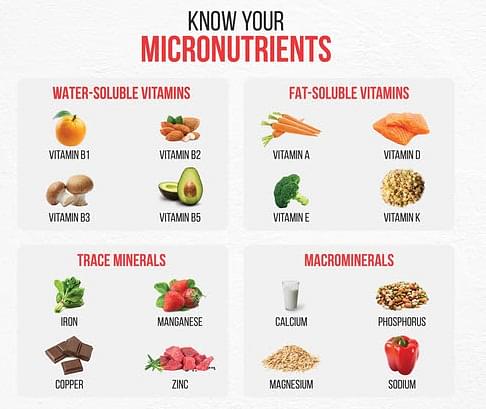
This image is property of images.collegedunia.com.
Amino Acids
L-Arginine
L-Arginine is an essential amino acid that plays a crucial role in various bodily processes, including the production of nitric oxide to promote healthy blood flow and cardiovascular function. It can be found naturally in foods such as meat, poultry, fish, and dairy products. L-Arginine supplements can be beneficial for individuals who have increased protein requirements or want to support healthy blood circulation. These supplements are available in various forms, including capsules, tablets, and powders.
L-Glutamine
L-Glutamine is a non-essential amino acid that is abundant in the body and crucial for various functions, including supporting gastrointestinal health, improving muscle recovery, and boosting immune function. It can be found naturally in foods such as meat, fish, dairy products, and certain vegetables. L-Glutamine supplements can be helpful for individuals who have specific health concerns or increased protein needs. These supplements are available in various forms, including capsules, powders, and liquids.
L-Lysine
L-Lysine is an essential amino acid that plays a role in protein synthesis, tissue repair, and the formation of collagen. It is primarily found in animal-based foods such as meat, fish, dairy, and eggs. L-Lysine supplements can be beneficial for individuals who follow vegetarian or vegan diets or have limited access to lysine-rich foods. These supplements are available in various forms, including capsules and tablets.
BCAAs (Branched-chain amino acids)
Branched-chain amino acids (BCAAs) refer to three essential amino acids: leucine, isoleucine, and valine. BCAAs are known for their role in muscle protein synthesis, muscle recovery, and reducing muscle fatigue. Good dietary sources of BCAAs include meat, dairy products, and legumes. BCAA supplements can be beneficial for individuals who want to support muscle growth and recovery, particularly athletes and those engaging in intense physical activity. These supplements are available in various forms, including powders, capsules, and liquids.
Enzymes
Amylase
Amylase is an enzyme that helps break down complex carbohydrates into simpler sugars for absorption and digestion. It is naturally produced by the salivary glands and pancreas. Good dietary sources of amylase include fruits, vegetables, whole grains, and legumes. Amylase supplements can be beneficial for individuals who have difficulty digesting carbohydrates or want to support healthy digestion. These supplements are available in various forms, including capsules and tablets.
Protease
Protease is an enzyme that aids in the digestion and breakdown of dietary proteins into smaller peptides and amino acids. It is naturally produced by the stomach and pancreas. Good dietary sources of protease include meat, fish, dairy products, and certain fruits. Protease supplements can be helpful for individuals who have difficulty digesting proteins or want to support optimal protein absorption. These supplements are available in various forms, including capsules and tablets.
Lipase
Lipase is an enzyme that aids in the digestion and breakdown of dietary fats into smaller fatty acids and glycerol. It is produced by the pancreas and small intestine. Good dietary sources of lipase include avocado, nuts, seeds, and oily fish. Lipase supplements can be beneficial for individuals who have difficulty digesting fats or want to support optimal fat absorption. These supplements are available in various forms, including capsules and tablets.
Cellulase
Cellulase is an enzyme that helps break down cellulose, a complex carbohydrate found in plant cell walls. It is produced by specific microorganisms and not produced naturally in the human body. Good dietary sources of cellulase include fruits, vegetables, and whole grains. Cellulase supplements can be beneficial for individuals who have difficulty digesting plant-based foods or want to support digestion of fiber. These supplements are available in various forms, including capsules and tablets.
Lactase
Lactase is an enzyme that aids in the digestion and breakdown of lactose, the sugar found in milk and dairy products. It is produced by the cells lining the small intestine. Good dietary sources of lactase include dairy products. Lactase supplements can be helpful for individuals who have lactose intolerance or have difficulty digesting lactose. These supplements are available in various forms, including capsules, tablets, and liquids.
In conclusion, there are a wide variety of supplements available that can help fulfill your body’s nutritional needs. From vitamins to minerals, omega-3 fatty acids to proteins, fiber to antioxidants, probiotics to enzymes, and herbs to botanicals – each category offers unique benefits to support overall health and well-being. While it is best to obtain nutrients through a balanced diet, supplements can be a convenient option for individuals who have specific dietary restrictions, limited access to certain foods, or increased nutrient needs. It is important to consult with a healthcare professional before starting any new supplements to ensure proper dosage, compatibility with existing medications, and to address any individual health concerns. Remember, supplements should not be a substitute for a healthy diet and lifestyle, but rather a complementary addition to support your overall nutritional needs.
